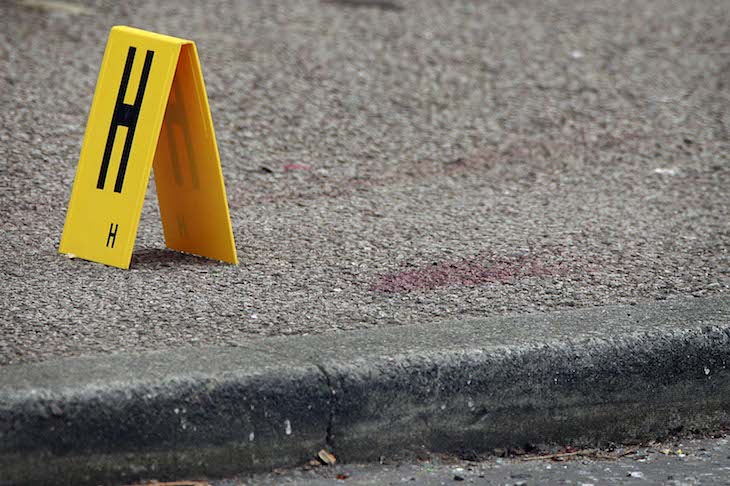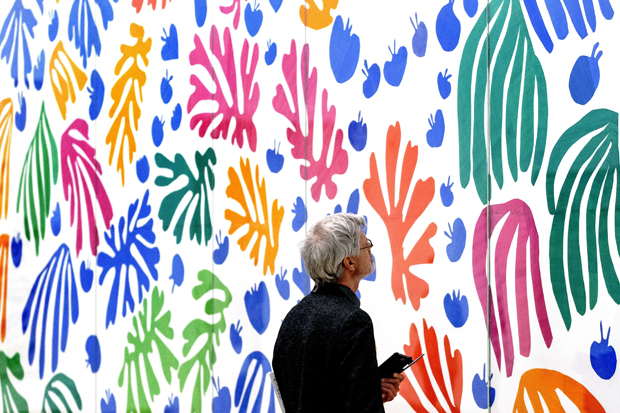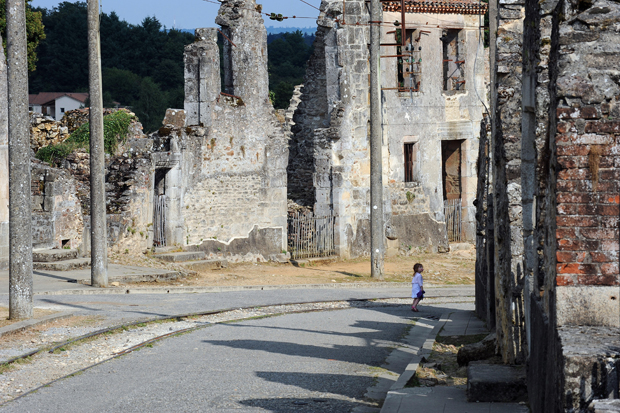Of all the villages of London, it seems to me, most of the time, that I live in the happiest: Primrose Hill, north of Regent’s Park, with its candy-coloured stucco houses, excellent cafés, friendly people, proper pubs and views over the capital which have film-makers daily kneeing each other in the groin — oh yes, and a good bookshop too. This can feel about as good as it gets. But that’s if you have some money. Just round the corner, virtually out of sight, is some of the worst deprivation in north London — huge poverty, so easy to look away from. A local church, St Mary’s, which has a wonderful youth programme, warns of ‘a threatening gang culture, extensive drug dealing and frequent stabbings… many young people cannot safely enter certain streets… Many fear leaving their homes because of violence.’ And they are right to be scared. Four young people have died on the streets of north Camden so far this year. Many more have been stabbed, or threatened with knives.
St Mary’s is stepping forward because, with cutbacks in local authority support and intense pressure on schools, the state is failing. Led by a charismatic youth worker called Jason Allen (we have local heroes too), the church’s community trust has been working intensively with more than 200 young people at risk. It runs weekly football to get others off the street and towards help; has intervened with gangs; has been organising weapon surrenders — including one firearm — and helps ex-prisoners coming home to get jobs. Some see this as purely a matter of party politics — ‘End austerity now!’ — but young people are dying too fast to wait for policy shifts. So around here at least — and I bet it’s true across the country — voluntary organisations, particularly churches, are taking the strain. It’s as if we’re tiptoeing back to the Britain before the welfare state, when there was much more voluntary engagement. Clem Attlee, don’t forget, started his career as a youth worker in the East End.
Meanwhile, surrounded by an epidemic of stabbing, St Mary’s, like other churches, is desperately short of cash. Weirdly, it may be linked to high house prices: the more socially engaged middle classes have moved away. They have sold out to frantically overworking City people, who can see the views but not much more. All of us who enjoy living in an urban ‘village’ have to start behaving like real villagers — looking out for our neighbours, or at the very least, putting our hands in our pockets for those who do.
It can be impossibly hard to concentrate on the intricacies of the Brexit negotiations. But over the past week, we have got a certain bracing clarity. There are two logical British positions. We mostly turn our backs on the EU way of doing things, and become a noticeably different country — less European, less regulated. That is where most Conservatives seem to be heading. Or we conclude that the economic risk is too big and stick close to the EU, ceding freedom to strike new trade deals in order to keep those nearer markets fully open. After his speech, that’s where Jeremy Corbyn’s Labour is going. What is being squeezed is the notion of a middle way — frictionless access to EU markets and maximum ability to diverge. I keep being told the EU will fold and give us this. Hooray if they did. But I see not a fragment of evidence for that. So it’s tough choices ahead; which will be resolved in the proper way — at a general election.
My greatest achievement so far this year is that I’ve got back on to a bicycle and pedalled my way around a running track. It wasn’t elegant. I wobbled a lot. Coming to a graceful halt eludes me, and I’m certainly not ready for the open road. But I didn’t fall off. Several years ago, following my stroke, I was blandly assured that cycling — like skiing, running and swimming — was something I would never do again. My physiotherapist was punching the air. I was grinning like a fool.
I have some sympathy with the striking college lecturers. They didn’t have big pensions to look forward to in the first place. But they are not alone. As we grow healthier and longer-lived, there is a creeping pensions crisis almost everywhere. We need a new social categorisation — Hedips (healthy enough to die poor).
I had the great good luck this week to interview Matt Pritchett — Matt the Telegraph cartoonist — a thoroughly nice and very brilliant man. He reminds me of two of the greats, Fougasse and H.M. Bateman. From my own brief career as a newspaper editor, I know that finding cartoonists who are both funny and can draw is nigh on impossible. They are journalistic gold dust: compared with a good cartoonist, columnists, interviewers and even editors are ten a penny.
Got something to add? Join the discussion and comment below.
Get 10 issues for just $10
Subscribe to The Spectator Australia today for the next 10 magazine issues, plus full online access, for just $10.
You might disagree with half of it, but you’ll enjoy reading all of it. Try your first month for free, then just $2 a week for the remainder of your first year.














Comments
Don't miss out
Join the conversation with other Spectator Australia readers. Subscribe to leave a comment.
SUBSCRIBEAlready a subscriber? Log in